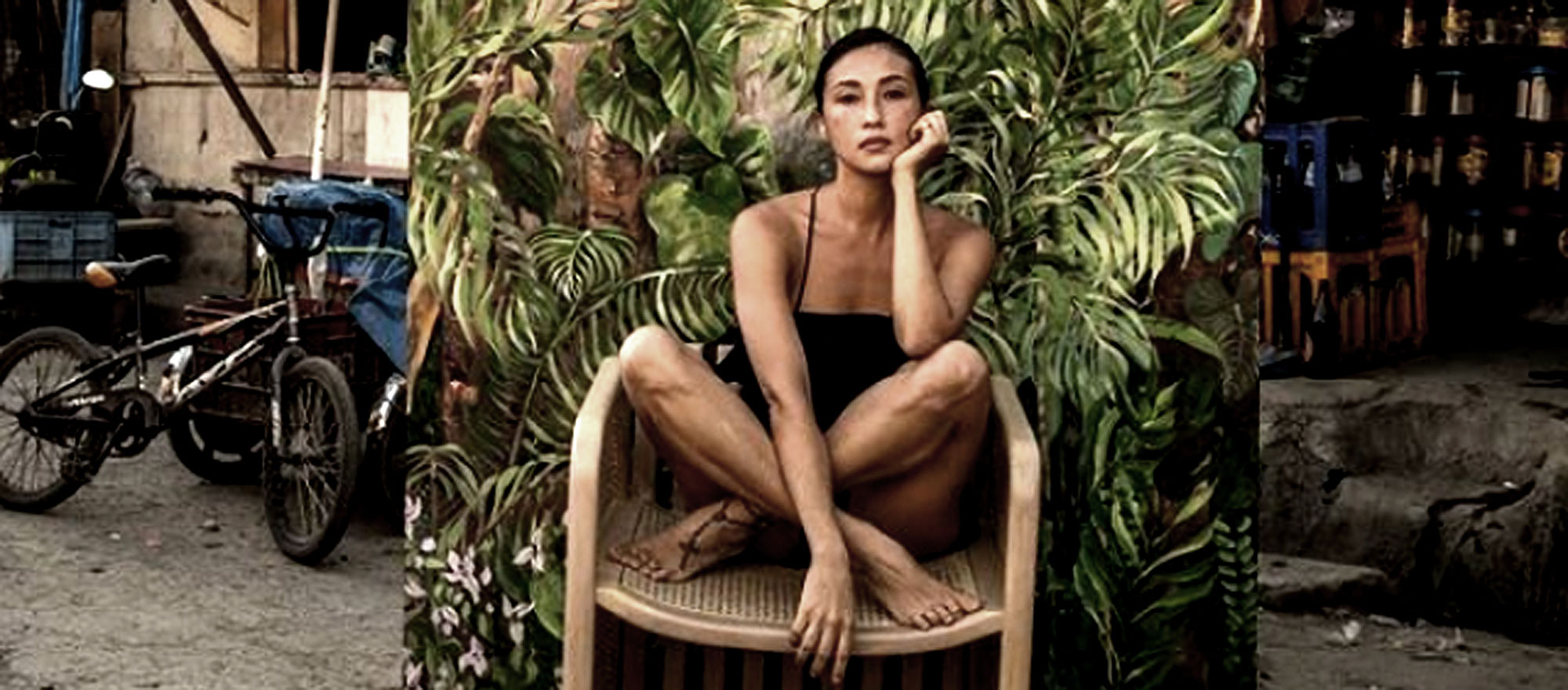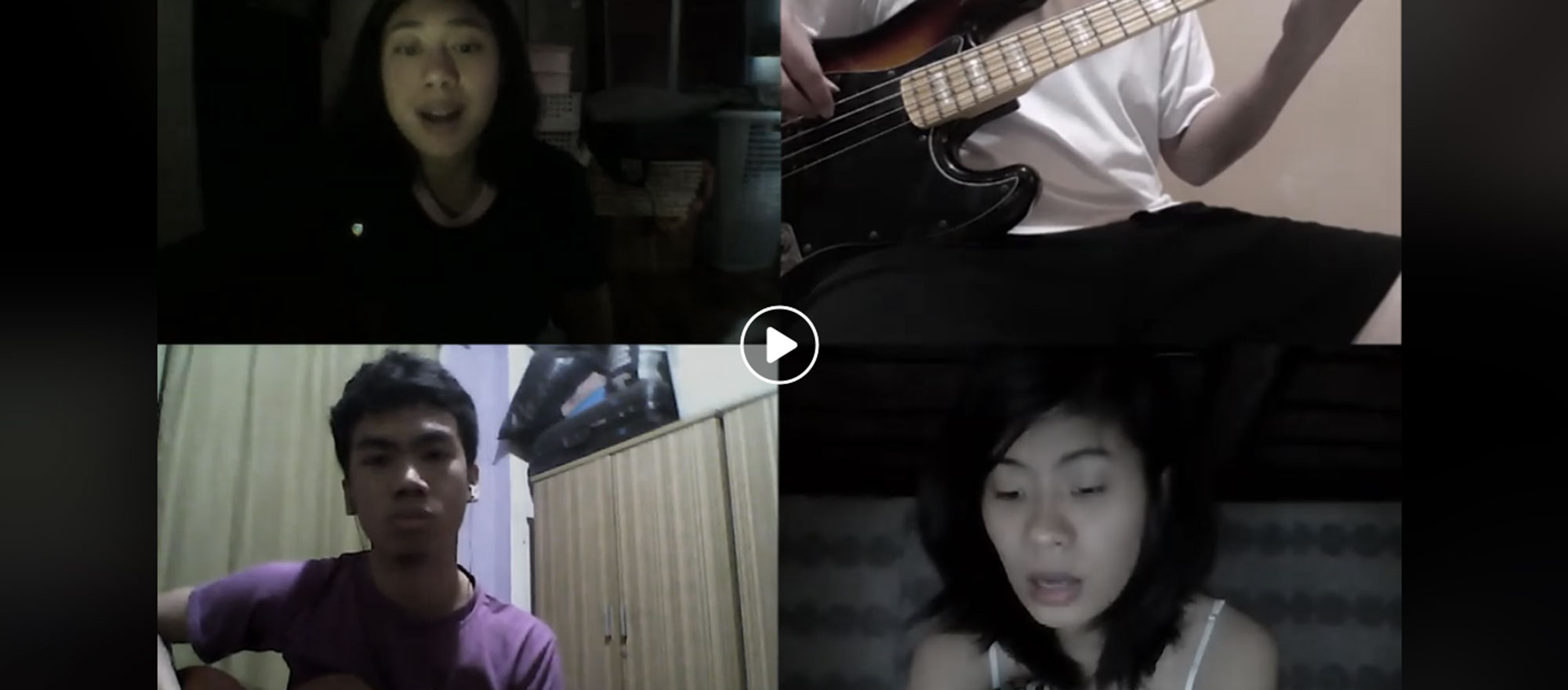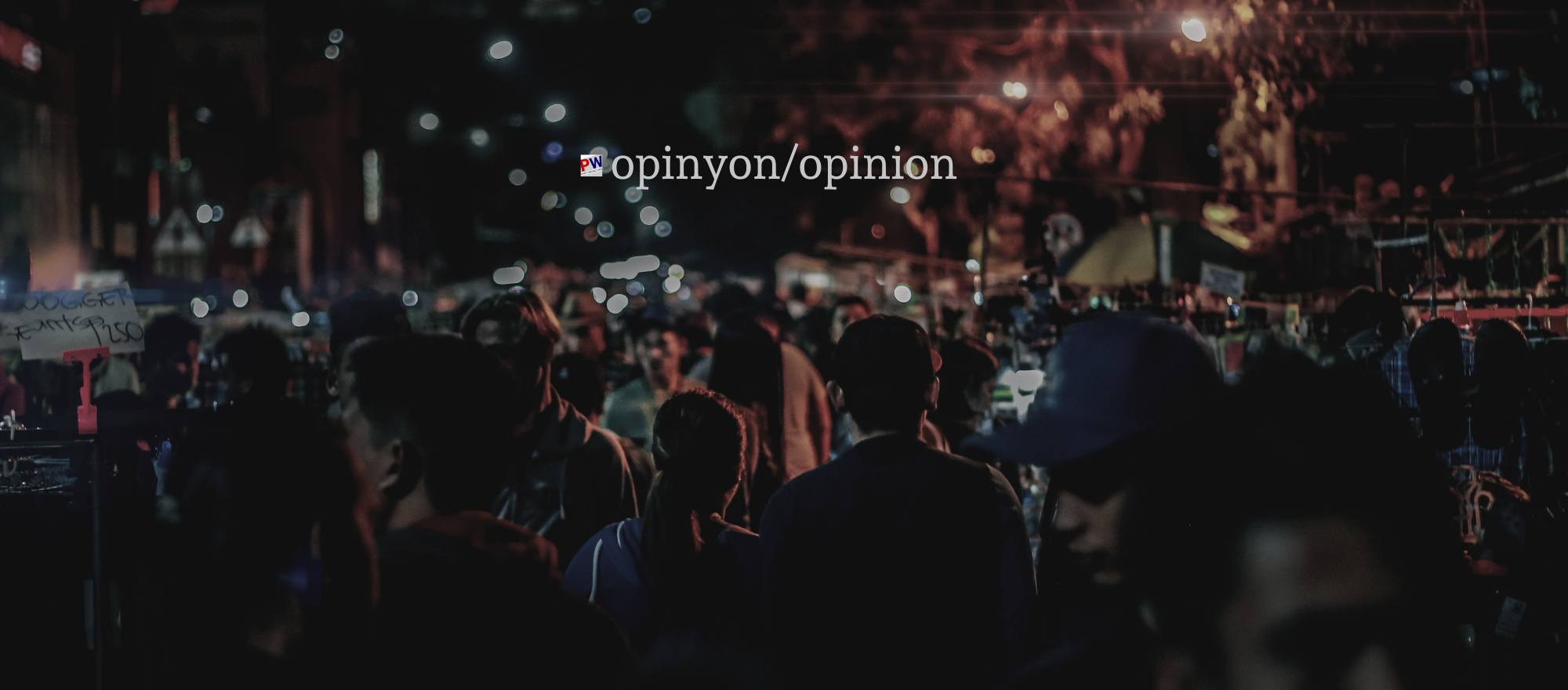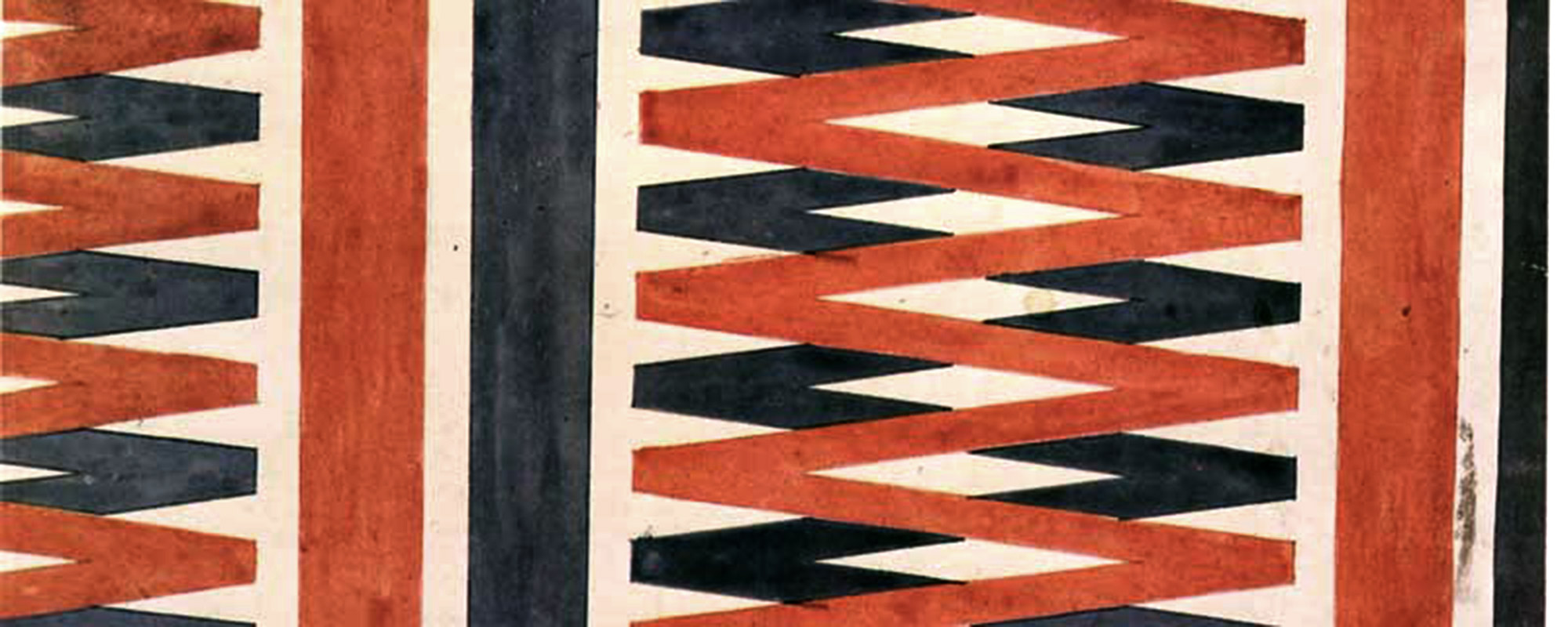Dear Meg | Creative funk
An artist asks about ‘creative funk’ and ponders about artistic work in these times.
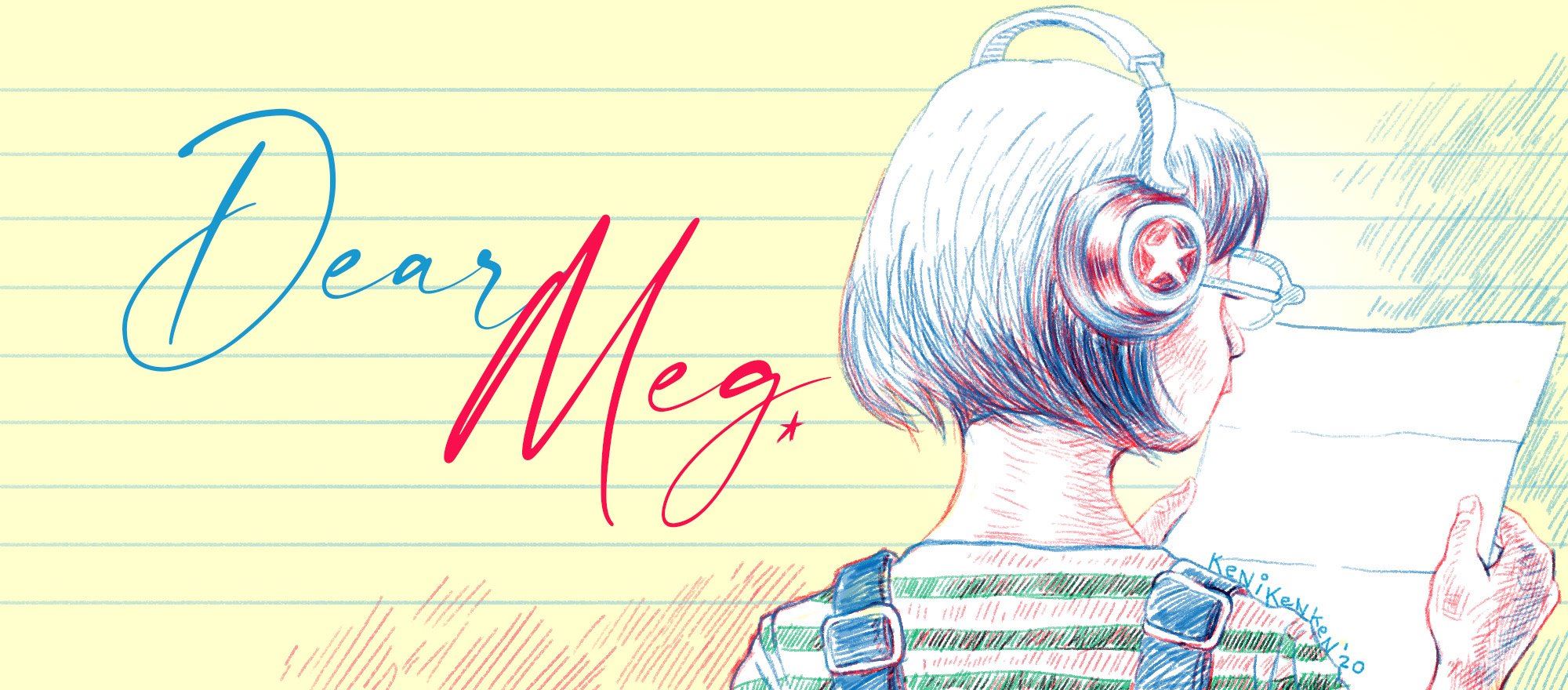
Dear Meg,
Ano ba ang creative funk at saan ba yun nanggagaling? Kung merong flow state, ano ang nagko-cause ng creative funk? Ako at ilang kakilala ko kasi ay nasa ganitong state lately.
Walang drive gumawa ng creative work, pero iba siya sa normal na pagod. Hindi makapagfocus kahit may ilang ideas na para i-execute dahil may feeling na hindi maka-connect dun sa flow state kung saan pwede mong ibuhos ang sarili mo sa pag-create. Dinescribe ito ng isang friend ko na parang mga pintuan sa mind niya. Kapag nasa flow state siya, kahit may energy siya o wala, maraming pintuan ang bukas. Pero kapag nasa creative funk, lahat ng pintuan ay sarado at worse ay parang may jam yung doorknobs na hindi niya mabuksan. You feel lost, paralyzed. Ganyan din yung pakiramdam ko.
Nagko-cause ito ng behavior na parang lutang lang. Nakatingin sa computer o list ng mga kailangang gawin pero walang masimulan. Lumilipas ang mga araw at deadlines na walang natatapos na nagko-cause ng shame, self-hatred, at doubt sa sariling abilities at work ethic.
Lately, kapag di ako nagwo-work, ok naman ako. The moment humarap ako sa computer at magbukas ng mga files na kailangan kong trabahuin ay nagkakaroon ako ng tension headaches, may slight na panginginig din sa arms at legs ko, parang minor tremors sa loob, at may slight na pagbilis ng tibok ng puso. Tapos ayun may ilang oras ang lumilipas na hindi ako makapagsimula. Sa mga swerteng araw na makapagsketch ako, I immediately hate kung ano ang ginawa ko. Feeling ko ang pangit.”
Any insight makakatulong nang malaki. Dahil ang hirap talaga kapag nandito.
B
Dear B,
Thank you for sharing your struggle. It sounds like a tough time, and I’ll try my best to be of help.
In your letter was an explicit question, “What is creative funk and where does it come from?” To be honest, I don’t know either. But I believe you were asking something more important between the lines: “Is there anything I can do about being unable to yield satisfying creative work these days?” The answer is a resounding yes.
It begins with doing away with labels, and ‘creative funk’ is a label. I understand its appeal; we like naming things so we’d have some power over them. But in your case, the opposite is what seems to have happened. The label acquired such power over you, and in your friend’s case, even found its equivalent in a metaphor. It becomes a problem when you start interpreting what happens purely in those terms. For instance, you get rejected for an opportunity you were eyeing, and you think of it as yet another door getting slammed on your face, because of who you are. You’d be so hurt and afraid to knock on others, and the disappointment affects your mood, your confidence, your subsequent work. It becomes a cycle. I imagine it would be a lot less painful if you look at it as a single rejection that isn’t necessarily about you, and which does not and should not define the trajectory of your life.
I read your description of your daily struggles, and I wanted to say that you would not be the first person in history to feel helpless while pursuing art. Creative life is messy and hard and unpredictable, but we know that that’s also what makes it exciting. I hope you never forget: you are in control and always will be. The challenge is to regain this sense, after going through the hurdles you talked about.
This brings me to behavioral ways to deal with your situation. How do you plan your day? Do you sit before your screen or a blank canvas and hope your muse comes? How does your desk look like? What do you eat for breakfast? How are you taking care of your body? I also thought to ask: is there any major concern that you may not have been paying attention to?
You can wake up, wait for inspiration to hit you, and let that dictate the course of your day. Or, you can take a more proactive approach: establish a routine where you know exactly what you’re going to do each hour, regardless of whether you’re feeling particularly creative. I know it sounds like the artist’s enemy, but routines are important, especially if you’re doing freelance work. A daily planner is your friend: list down your tasks, and find time for each throughout the day, based on your priorities. Lend a half-hour, too, towards the resolution of bigger problems, or making even the tiniest progress on your long-term goals. Prepare a grocery list, and plan your meals for the week. Be mindful of your body’s response to what you eat, so you don’t feel bloated and lethargic when it’s time to work. Cut out the sugar and caffeine when you’re about to sleep, so you get ample rest and wake up refreshed the next day.
Structures and habits are your anchors, especially in a historical moment like ours. We can’t know when we’re getting vaccines or when these injustices will end (or we can, but that’s for another conversation) but I promise that it would help to know that at 7am each day, there will surely be a cup of coffee in your hand, and every 8pm, your sink will have been cleared of dirty dishes. Once you’ve got the basics – meals, exercise, house chores, bedtime, etc. – down pat, and dealt with what may have been bugging you in the background even in small ways, you’ll be in a better position to feel creative in between.
To nurture creative flow, I’d recommend doing mindfulness exercises, including meditation and slow physical activities, like cooking, tending to plants, and walking. These practices hone your ability to perceive the world with focus, and allow you to experience life more fully than most. Other than these, it really depends on what sparks joy in your person. The activities themselves are not the point. As my mentor explains, the exhortation to stop and smell the roses is a call to listen to yourself: “It’s not about the roses. It’s about what’s inside you that responds to them.” And so I’d add that the thrilling part of your journey as an artist would be learning what excites you, and what that says about you.
Sadly, modern life is antithetical to this requirement of the artistic vocation (by modern life I do not mean modernity per se, but as dictated by the economic order). Today’s society teaches us to value fame and wealth and power above all else, and it marks a society’s downfall when its artists, too, begin to think this way. Because then they would be so focused on making money and noise, and resent the quiet, slow, and still life that breeds creativity. They would judge themselves based on parameters set by others, and be afraid of whatever will threaten their access to these things.
Frightened people do not make great artists. In history, the best artists were often the irreverent lot, men and women who possessed a healthy distrust of authority as well as the heart to break the rules, not for the sake of doing so, but in pursuit of an idea they strongly believed in, a new way to see the world. That single-mindedness allows them to forego notions of personal comfort and interest, and among many a poet, aspirations of financial stability (there’s a reason why the cliché of a starving artist exists). But that’s the easy part. The bigger challenge concerns the sense that most artists have to deal with, of being so attuned to the pains and aches of the world and feeling more deeply than most, along with a persistent, possibly insatiable drive to find out the truth about life. It’s a blessing and a curse.
Inevitably, I will be quoting James Baldwin, who writes on the subject,* “A society must assume that it is stable, but the artist must know, and he must let us know, that there is nothing stable under heaven. One cannot possibly build a school, teach a child, or drive a car without taking some things for granted. The artist cannot and must not take anything for granted, but must drive to the heart of every answer and expose the question the answer hides.”
It was brave of you to choose the creative path, and I salute you for making that decision. But, as you know by now: it takes even more courage to stay in it. The life of an artist demands so much, and I guess the question you now face is whether you feel it’s worth it, and if you’ll have it any other way.
Would you rather not be an artist? I know, deep in your heart, you know the answer.

